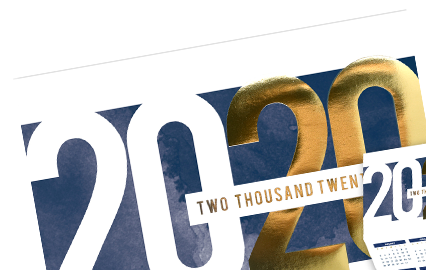Oct 3rd 2023
How Rewards and Recognitions Impact Employees' Mental Health
The impact of rewards and recognition on employees' mental health is a crucial aspect to consider in today's competitive work environment. As professionals, remote workers, or anyone striving for success, understanding the significance of these factors can lead to improved performance and overall well-being.
In this blog post, we will delve into both the positive and negative consequences that stem from rewards and recognition programs. We'll explore how they affect mental health and discuss strategies for implementing effective systems within your organization.
By examining the various aspects surrounding the impact of rewards and recognition on employees' mental health, you'll gain valuable insights that can be applied in your professional life to foster a more supportive and productive workplace culture.
Introduction
In today's competitive business environment, organizations must understand the importance of rewards and recognition in the workplace. Rewards and recognition are essential components that contribute to employee satisfaction, motivation, and overall mental health. This article will discuss the impact of rewards and recognition on employees' mental health, highlighting its significance in fostering a positive work environment.
Definition of Rewards and Recognition in the Workplace
Rewards can be defined as tangible or intangible benefits provided by an employer to acknowledge an employee's efforts, achievements, or performance. These may include salary increments, bonuses, promotions, gifts such as business thank you cards or other non-monetary incentives like flexible working hours.
Recognition refers to verbal or written acknowledgment given by managers or peers for an individual's accomplishments within their role. Examples include praise during team meetings, custom greeting cards, and public announcements via company newsletters or social media platforms.
The Importance of Employee’s Mental Health in The Workplace
- Mental well-being: Employees with good mental health tend to be more productive at work due to increased focus and energy levels.
- Better teamwork: A healthy workforce fosters better communication among team members leading to improved collaboration which ultimately drives success for businesses.
- Lowers absenteeism: A mentally healthy workforce reduces absenteeism rates resulting from stress-related illnesses thus reducing costs associated with hiring temporary staff replacements while maintaining productivity levels intact.
- Talent retention: Companies that prioritize employee mental health tend to have higher retention rates, as employees feel valued and appreciated within the organization.
In conclusion, rewards and recognition play a significant role in promoting positive mental health among employees. By understanding its importance and implementing effective strategies for rewarding and recognizing achievements, organizations can create an environment where both employees' well-being and business success are prioritized.
Rewards and acknowledgments in the work environment can have a constructive effect on an employee's psychological state, which merits more intensive research. As such, this resource page will delve into the ways that rewards and recognitions can have a beneficial effect on an employee's overall well-being.
Positive Impact of Rewards and Recognition on Mental Health
Acknowledging the efforts of one's team can have a variety of positive effects on mental health. Let's explore some of these benefits:
Boosts Employee Motivation and Morale
Acknowledging an employee's achievements through rewards and recognition can significantly boost motivation levels. This, in turn, encourages them to perform better at work. A motivated workforce is more likely to be engaged with their tasks, leading to higher productivity levels.
Increases Feelings of Value and Appreciation
Feeling valued and appreciated is essential for every individual - both personally and professionally. When staff is rewarded or acknowledged for their work, it can create a sense of being noticed by leadership, which then leads to enhanced job satisfaction.
- Promotes Positive Self-Esteem And Self-Worth:
- Rewards such as custom greeting cards from Granger McCollough not only make employees feel good about themselves but also contribute towards charity since 20% of proceeds go towards charitable causes chosen by the customer. These personalized tokens help build self-esteem while promoting a sense of purpose beyond just professional accomplishments.
- Reduces Stress And Anxiety:
- A workplace that fosters a culture of recognition can help reduce stress and anxiety among employees. When they feel appreciated for their efforts, it reduces the pressure to constantly prove themselves, leading to a more relaxed work environment.
Incorporating rewards and recognition into your company's culture can have lasting positive effects on employee mental health. Not only does it create an atmosphere where people feel valued, but it also encourages them to strive for excellence in their work. By making small gestures like sending custom greeting cards from Granger McCollough, you are investing in the well-being of your team members while contributing towards charity at the same time.
Rewards and recognition have a positive impact on mental health, as they can motivate employees to strive for excellence. Without adequate reward and acknowledgment, mental well-being can be adversely affected; it is essential to recognize the potential manifestations of this to guarantee that all personnel receives the necessary support.
Negative Impact of Lack of Rewards and Recognition on Mental Health
Without proper acknowledgment, the psychological health of personnel may be detrimentally affected. Some consequences include:
- Decreased job satisfaction: Employees who feel undervalued or unappreciated are more likely to experience dissatisfaction with their jobs. This can lead to disengagement, decreased productivity, and even higher turnover rates. A study conducted by the Society for Human Resource Management (SHRM) found that employee engagement is directly linked to job satisfaction.
- Feelings of undervaluation and demotivation: When employees don't receive proper recognition for their hard work, they may begin to question their worth within the organization. This lack of appreciation can lead to feelings of inadequacy, which in turn results in lower motivation levels.
- Increase in stress and anxiety: The absence of positive reinforcement through rewards and recognition programs may contribute significantly towards increased stress levels among employees. According to a report published by the American Psychological Association (APA) titled "Stress in America", feeling underappreciated at work was identified as one major source contributing to workplace stress.
- Burnout and mental health issues: Over time, these negative effects on an employee's mental well-being can accumulate into serious conditions such as burnout or other mental health disorders like depression or anxiety disorders. HBR's research indicates that employees who lack recognition and appreciation in the workplace are more likely to suffer from burnout.
Employers must recognize the potential negative impact of inadequate rewards and recognition on their employees' mental health. By addressing these issues proactively, organizations can create a healthier and more productive work environment for all team members.
The lack of rewards and recognition can have a detrimental effect on an employee's mental health, leading to feelings of frustration and dissatisfaction. To combat this issue, employers should strive to implement effective reward and recognition programs that recognize employees' efforts in meaningful ways.
Strategies for Implementing Effective Rewards and Recognition Programs
In this competitive market, making sure employees are content and mentally healthy is critical. One way to achieve this is by implementing effective rewards and recognition programs that not only boost morale but also contribute positively to the overall workplace atmosphere. In this section, we will discuss various strategies for creating successful rewards and recognition initiatives.
Regular Feedback and Communication
The foundation of any successful rewards program lies in regular feedback and open communication between employees and management. Encourage managers to provide constructive criticism as well as praise when warranted, ensuring that employees feel valued for their contributions. Additionally, consider conducting employee surveys or feedback sessions periodically so that you can identify areas where improvements are needed.
Personalized Rewards and Recognition
- Tailor-made awards: Customize your reward system based on individual preferences, such as offering gift cards from a favorite store or tickets to an event they enjoy.
- Acknowledge achievements publicly: Celebrate accomplishments during team meetings or through company-wide announcements via email or social media platforms like LinkedIn.
- Create unique experiences: Offer memorable experiences such as lunch with the CEO or a day off work for exceptional performance.
- Giving back: Allow employees who reach specific milestones to choose a charity they would like the company to donate towards; our custom greeting cards at Granger McCollough allow businesses to give back while celebrating success stories.
Transparency and Fairness
To maintain trust among employees, ensure that your rewards and recognition program is transparent and fair. Communicate the criteria for earning rewards, as well as how they will be distributed. Avoid favoritism by establishing a systematic approach to evaluating performance, which may include setting measurable goals or using peer evaluations.
Consistency and Frequency
Rewards should not be limited to annual bonuses or promotions; instead, consider offering smaller incentives more frequently throughout the year. This can help maintain motivation levels while also providing ongoing opportunities for employees to feel appreciated. Some ideas include:
- Spot bonuses: Offer small cash rewards for outstanding work on specific projects.
- Social recognition: Use internal communication channels like Slack or Microsoft Teams to give shout-outs when someone goes above and beyond their duties.
- Celebrate milestones: Acknowledge work anniversaries, birthdays, or other significant events with personalized messages from management or colleagues.
Incorporating these strategies into your company's culture can lead to increased employee satisfaction, improved mental health outcomes among staff members, and ultimately higher productivity rates within the organization overall.
Rewards and recognitions can be potent instruments for fostering beneficial psychological well-being in the workplace, yet it is essential to guarantee that these schemes are applied accurately. With this in mind, let us now explore the conclusion of our research on the impact of rewards and recognition on employees' mental health.
Wrap Up
The importance of prioritizing employee mental health through rewards and recognition cannot be overstated. By implementing effective programs, employers can create a positive work environment that fosters motivation, job satisfaction, and overall well-being for their employees.
Moreover, the benefits extend beyond just individual employees. Companies with strong rewards and recognition systems in place often see increased productivity, higher retention rates, improved company culture, and even better financial performance. For instance, Gallup research has shown that organizations with high employee engagement outperform those with low engagement by 10% in customer ratings and 21% in profitability.
- Boosts employee motivation: When employees feel valued for their hard work and achievements through regular feedback or personalized rewards like custom greeting cards, they are more likely to stay motivated to perform at their best.
- Promotes positive self-esteem: Rewards such as public acknowledgment or tangible tokens of appreciation can help improve an individual's self-worth within the workplace.
- Fosters a supportive work environment: By recognizing each other's accomplishments regularly - whether it is from management or peers - team members develop stronger relationships built on trust and respect.
- Increase retention rates: Employees who feel appreciated are less likely to seek opportunities elsewhere; this not only saves companies time but also resources spent on hiring new talent.
To maximize these benefits for both employees and employers alike, businesses should prioritize strategies like regular feedback, personalized rewards, transparency, and fairness in their recognition programs. Businesses should ensure that their staff feels appreciated for the part they play in achieving organizational success by utilizing feedback, rewards tailored to individual needs, openness, and impartiality in reward schemes.
Frequently Asked Questions Impact of Rewards and Recognitions on Employees' Mental Health
How does recognition affect mental health?
Recognition positively affects mental health by boosting self-esteem, reducing stress, and increasing motivation. It fulfills the psychological need for appreciation and validation, leading to improved well-being and job satisfaction. A supportive work environment with regular recognition contributes to better overall mental health.
What impact do rewards and recognition have on employees?
Reward and recognition significantly impact employee engagement, productivity, retention rates, morale, and job satisfaction. They foster a positive work culture that encourages collaboration and innovation while reducing turnover rates. Employees who feel valued are more likely to be committed to their organization's goals.
What is the negative impact of the reward system on employees?
A poorly designed or implemented reward system can lead to unhealthy competition among employees or encourage short-term focus instead of long-term growth. It may also create feelings of inequality if rewards are perceived as unfair or biased towards certain individuals or groups within the organization.
Does employee recognition affect positive psychological functioning and well-being?
Yes, employee recognition has a significant effect on positive psychological functioning and well-being. When recognized for their efforts, employees experience increased levels of happiness and self-worthiness; it fosters resilience against stressors in the workplace while promoting personal growth through enhanced motivation.
Conclusion
In conclusion, rewards and recognition have a positive impact on employees' mental health. It boosts their morale, motivation, and productivity while reducing stress levels. Without recognition, employees may become burned out and experience deteriorating mental health.
To implement effective rewards and recognition programs in your workplace, consider setting clear criteria for performance evaluation, and providing timely feedback and incentives based on achievements. This will not only benefit your employees but also improve overall business outcomes.
Make an Impact Today! Show your appreciation for hard working employees by sending them personalized cards from Cards for Causes. Every purchase donates 20% to a charity of your choice! Let's make a difference together!


 Business
Business
 Personalized
Personalized
 Holiday
Holiday
 Customer
Customer
 Bulk
Bulk
 Birthday
Birthday
 Thank You
Thank You
 Anniversary
Anniversary
 Sympathy
Sympathy
 Retirement
Retirement
 Christmas
Christmas
 Thanksgiving
Thanksgiving
 New Year
New Year
 Hanukkah
Hanukkah
 Rosh Hashanah
Rosh Hashanah
 Appreciation
Appreciation Merry Christmas
Merry Christmas Happy Holidays
Happy Holidays Seasons Greetings
Seasons Greetings Funny Cards
Funny Cards Religious
Religious Peace
Peace Patriotic
Patriotic Accounting
Accounting Finance
Finance Photo Cards
Photo Cards Foil Cards
Foil Cards Laser Cut Cards
Laser Cut Cards Die Cut Cards
Die Cut Cards Front Imprint
Front Imprint Recycled Cards
Recycled Cards New York
New York San Francisco
San Francisco Chicago
Chicago Los Angeles
Los Angeles Houston
Houston By Animal
By Animal Christmas Tree
Christmas Tree Western/Southwestern
Western/Southwestern Tropical/Beach
Tropical/Beach Winter Scenes
Winter Scenes Budget Cards
Budget Cards Legal
Legal Construction
Construction Real Estate
Real Estate Trucking
Trucking Accounting
Accounting Holiday Phrases
Holiday Phrases







 Fully Custom
Fully Custom  Friendly
Friendly A portion of every card purchased is donated to charity.
A portion of every card purchased is donated to charity.
 Proudly Made
Proudly Made